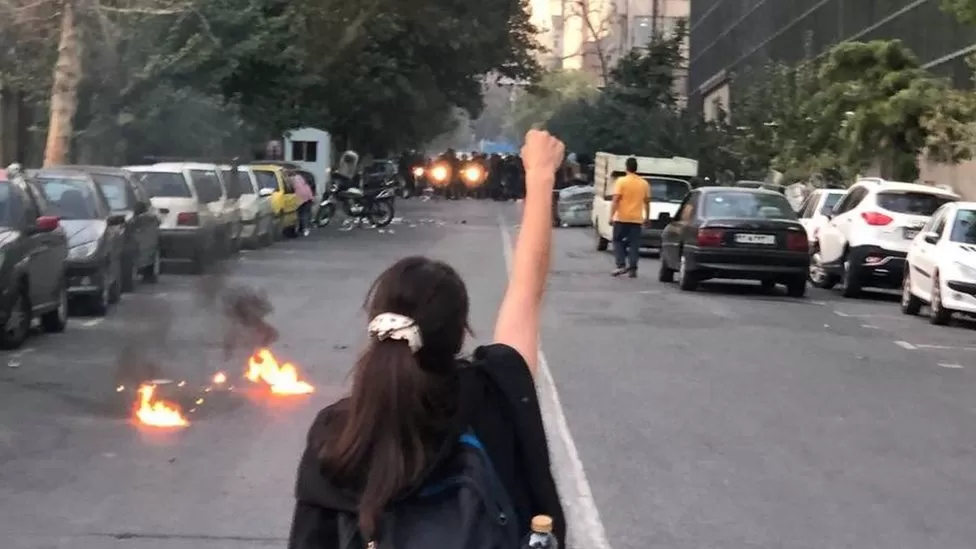I’ve had many privileges in my life, two of them have become increasingly clear to me in past years. I’ve had the absolute privilege of living in a peaceful, free and democratic country such as Canada. Because of the first, I’ve also had the privilege of getting a good education, something many take for granted in a world where it is not yet universal.
Elementary and secondary school have taught me many concepts—some more memorably than others, of course. In my history classes, I’ve learned about Canada’s (for the most part) stellar human rights record and history of cooperation with the United Nations. In my science and law classes, I’ve learned to make decisions based on facts and avoid speculation or unfounded assumptions at all costs, as I was expected to be a rational being and make rational decisions.
I’m thankful for these lessons and plan to apply them in my career ahead in international affairs. Maybe then we’ll finally learn from mistakes of the past.
To avoid an inevitable spiraling into a rant on a panoply of subjects tied together by the point I’ll attempt to make, I’m keeping this short and (bitter)sweet.
When news and images of a potential chemical gas strike in Khan Sheikhoun, Syria, reached mainstream networks, the world was immediately and rightfully enraged. The dying light in the eyes of kids the age of my little sister and I broke my heart and I’m sure of millions around the world. It seems, though, that our broken hearts are all we are left with after attacks such as these. Our broken hearts, and, of course, calls for action.
These calls for action are as varied in their sources as in their specifications. Some call for investigations and others, putting the proverbial battle horse before the cart, call for a full-blown military intervention, the good ol’ American and freedom-lovin’ way.
I cringe as I type those last words, as they’ve definitely become clichés. I recognize this and beg the question: why? Why has American-brand international aggressiveness been immortalized as a tired-out joke? Was it Iran in the 50s? Or Chile in the 70s? Most of Latin American and the Middle-East for that matter would be more than plausible explanations for why the United States and its allies have been made synonymous with Empire. I’m not trying to come across as hectoring or all-knowing, words I’m sure some will jump to when they find out I’m still in high school. This information, after all, is just simply found in the history books that I’ve had the privilege of being able to read.
What troubles me more than our southern neighbor’s unsurprising and uninterrupted behavior is my country’s interaction with it. Once progressively independent—categorically saying “no” to involvement in the disastrous Iraq War—we’ve unfortunately fallen back to the same lap-dog dynamic in our foreign policy.
To be fair, Justin Trudeau—a man who has disappointed me many times since his 2015 election—did pleasantly surprise me when he called for a UN investigation to fully determine who used chemical weapons in Khan Sheikhoun. In fact, he called for the UN Security Council “to pass a strong resolution that allows the international community to determine first of all who was responsible for these attacks and how we will move forward.”
Some hours later, Trump struck Shayrat airbase and a sovereign country’s military. Trudeau, in a pattern I’m beginning to recognize, about faced, flip-flopped, reconsidered; whatever term you’re most comfortable with. Hours after stating that “It is important to make sure we have all the facts,” my prime minister declared his full support for the strike.
Again, no investigation was conducted, no facts were established in the hours separating those two positions.
I’ll take this opportunity to add the words “naive” and “idealistic” to the list of words being used to describe me for suggesting that maybe, just maybe, taking an independent stance on the Syrian chemical attack question, one based on objective facts and evidence would have been the right call for Canada on April 7, 2017 and the days following. I was under the impression that standing up for the truth and human rights has always seemingly been the signature Canadian foreign policy attitude.
I recognize that Bashar Al-Assad is no saint. I’m sure he’s responsible for civilian deaths and crimes against humanity. I am also sure, though, that it’s definitely not up to the United States to be judge, jury and executioner in its world crusade for freedom, love and liberty. Calling for democracy and the protection of innocents while aiding a despotic, theocratic monarchy bomb a country into starvation and submission while killing hundreds of civilians in the region is what I’ve learned to call hypocrisy and double-standardism. Some might call this “whataboutism,” I call it introspection. Maybe my prime minister could contemplate it next time he tries to get into Trump’s good graces.



